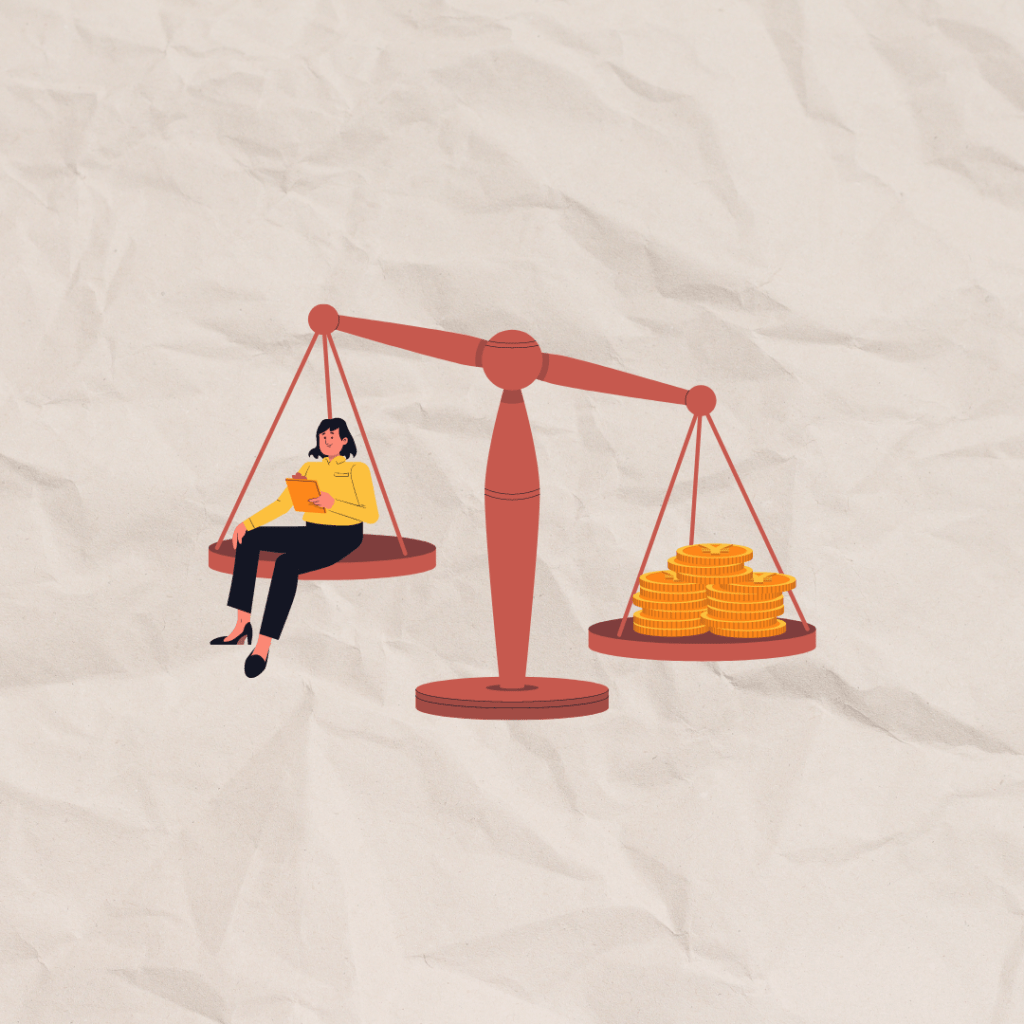An Honest Perspective On The State of Real Estate and What To Tell Clients
“Recession” is a scary word in real estate. Recessions bring rising mortgage rates, faltering home sales, a slow down in construction, and reduced buyer competition. But is real estate in a recession now? And what should you explain to clients to keep things in perspective? This article provides an honest look at the state of real estate today and includes references from historical data.
First, let’s get on common ground
There is no such thing as an economy that is in a perpetual state of growth. What goes up must come down. And, no matter how much we wish things were different, economic cycles follow this rule. This is to say that every economic boom is invariably followed by a bust.
Below is a chart of the US GDP dating back to 1951. While from a macro perspective, it looks like things have only grown, when you zoom in you can see the typical market cycles. The areas in dark gray represent times of recession.
Since the Great Recession of 2007, we’ve had the biggest boom–or as economists put it, expansion–since 1854. Propped up by government stimulus spending, it lasted 9.25 years. For context, an average business cycle is 4.7 years. The expansion part of that cycle lasts an average of 3.2 years while the contraction lasts 1.5 years. This makes us overdue for a correction by more than 4.5 years.
So, what now: Is real estate in a recession?
Technically, no, we are not in a recession. However we should behave as if we are. Let us explain.
The National Bureau of Economic Research (NBER) is a private, nonpartisan organization responsible for labeling economic cycles. They define a recession as a “significant decline in economic activity that is spread across the economy and lasts more than a few months.”
According to this definition, based on the latest numbers, the US economy has not entered a recession. However, the macroeconomic data that the NBER uses to inform their analysis lags by several months. This means that by the time they are ready to apply a label, we may have already experienced that business cycle for several months.
What’s more, the data keeps oscillating and sending mixed signals. While the stock market is not doing so hot, the jobs numbers are going strong. While the Consumer Confidence scores a down, the GDP is seeing growth. Here are some recession indicators, including the latest report from the Bureau of Economic Analysis, released on January 26, 2023:
- Q1 and Q2 saw the GDP contract 1.6% and 0.6% respectively
- However, Q3 and Q4 reports showed growth of 3.2% and 2.9% respectively
- Unemployment and jobless claims are holding up strong, with 3.5% unemployment and 186K claims
- The S&P 500 is down 8.15% YTD as of Jan 27th, 2023
- The Consumer Price Index (CPI) is at +6.5%, which is better than the November report of 7.1%, but still bad
As the joke goes, when you gather five economists into a room, you get seven different opinions… While the NBER says we’re going strong, many economists predict a 98.1% likelihood of a global recession in 2023. So, even if they are all off the mark, you should probably behave as through real estate is in a recession and structure your business strategies accordingly.
Let’s take a closer look at real estate today
While we may not technically be in a recession, real estate is certainly experiencing a market shift.
- Housing Starts are down 4.2%
- The Home Builder’s Index is at 38, down another 8 points
- Home sales are down more than 36% from this time last year
- And there are fewer homes up for sale than this time last year (down 14%)
Regardless of labels, contractions in the economy are normal and should be anticipated. After all, they are part of a healthy and functioning economy. However, they do come with predictable challenges. We see higher interest rates, which means fewer people are eligible to buy, and fewer still are eager to sell. What’s more, as demand for new homes declines, construction slows down. And as lending requirements get tighter, first time homebuyers are squeezed out of the market. This, of course, means starter homes become hard hit.
Changes in market cycles always mean advantages for some situations and disadvantages for others. So, while starter homes may not be selling for a premium in the coming months, they may be renting as such. While high interest rates may bar some people from entering the market, others who can qualify will be able to benefit from the reduced home prices. It is important to stay on top of market trends so that you can adjust your own business strategies as well as better advise your clients.
Keeping Things in Perspective
What to explain to buyers and sellers about the state of real estate today
Real estate is an investment. And like all investments, it carries a degree of risk. However, if you don’t plan to take your money out in the next year, and if you’re able to carry the payments that come with the property, history suggests that you can expect to see a healthy return on your investment.
Stating the obvious: The winning strategy in real estate investing is to buy at the bottom and sell at the top. Nice tip, huh?
Here’s a lesser known truth: Given a long enough timeline, every point is a “bottom” for a period in the future.
See for yourself.
Below is the housing price data across the US for the last 30 years. The areas in dark gray represent recessions.
As you can see, there hasn’t been a time in history when homes didn’t see a significant appreciation over a span of 10 years. In fact, based on average home prices, if you bought at the peak leading up to the 2001 recession and sold it at the bottom of the Great Recession, you still would have seen 16.42% growth. If you sold after 10 years, in 2011, your gains would have been more than 27%.
And again, that’s the worst case scenario.
If you were lucky enough to buy at the bottom of the Great Recession and sell ten years later, you would have made out with 59% gains! While past performance is not a guarantee of future performance, it is as strong an indicator as we are going to get. Therefore, those who are well positioned to invest in real estate may still stand to gain, regardless of market conditions.
Conclusion
Whether real estate is in a recession or not, it is experiencing a market shift. That means that homebuyers who don’t want to gamble should go in with long-term intentions. Meanwhile, sellers should bear in mind that there is a chance that the bottom is not in yet. While home prices have dropped, other industries are still going strong. And if that is to change over the coming year or two, you don’t want to be in a position to be forced to sell. Therefore, all real estate decisions should be made with conservative estimates and a little extra margin to spare. And if you’re a real estate professional, now is the time to rethink your business strategy and plan ahead in response to changing trends.
Local Leader® is a free publication for real estate agents, brokers, and teams. We are committed to providing great resources to help real estate professionals succeed. For more tips and insights, sign up to our newsletter.


